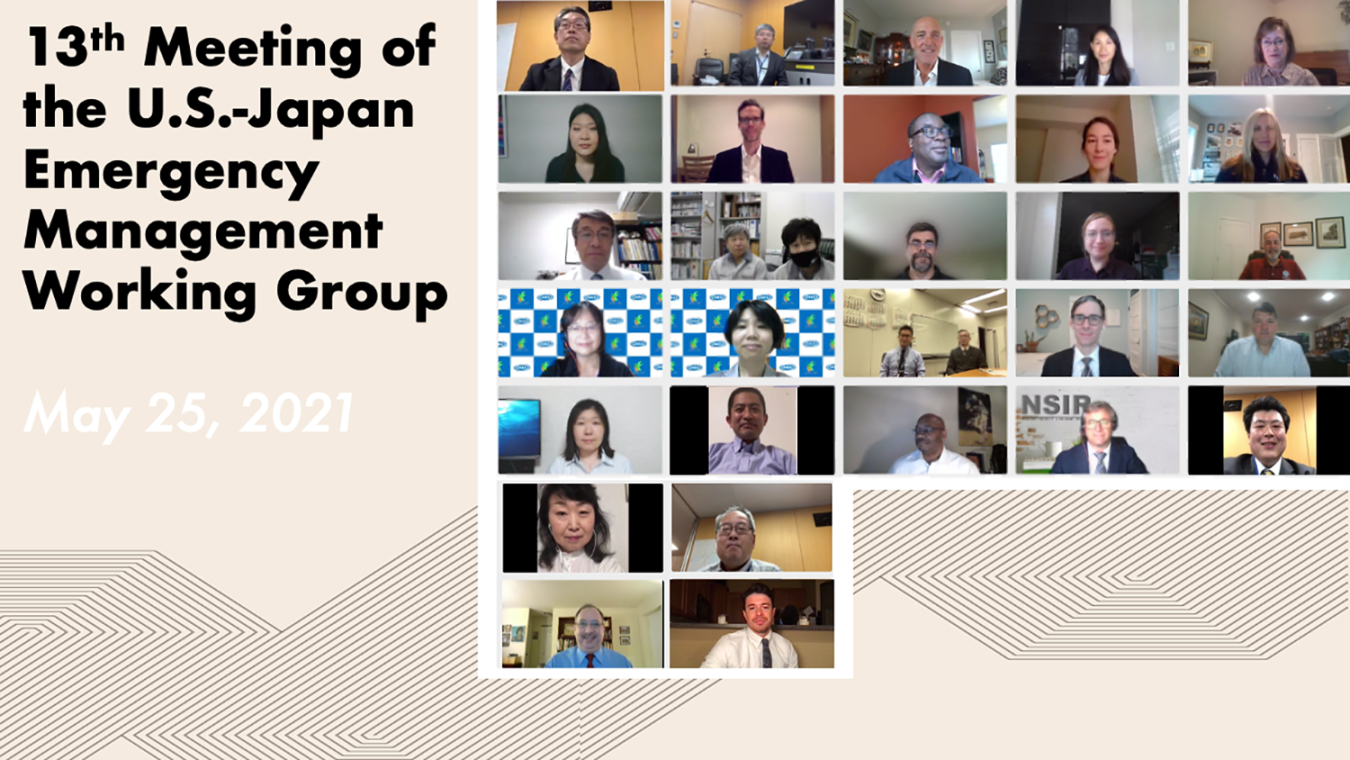The two parties reviewed recent accomplishments and reiterated their joint commitment to working together to strengthen nuclear and radiological emergency preparedness and response.
National Nuclear Security Administration
June 8, 2021
On May 25, 2021, representatives from the governments of Japan and the United States convened virtually for the 13th meeting of the U.S.-Japan Emergency Management Working Group (EMWG). The meeting was co-chaired by Mr. Shinichi Araki, Director General of the Nuclear Disaster Management Bureau of the Cabinet Office of Japan, and Mr. Jay A. Tilden, Deputy Under Secretary for Counterterrorism and Counterproliferation for the U.S. Department of Energy/National Nuclear Security Administration. The two parties reviewed recent accomplishments and reiterated their joint commitment to working together to strengthen nuclear and radiological emergency preparedness and response.
The co-chairs applauded the efforts of EMWG members to continue to engage on this important issue despite the COVID-19 pandemic. They highlighted a number of successful joint activities, including virtual information exchanges and reciprocal observation of trainings and exercises. Both sides expressed appreciation for the close and continuing partnership represented by the EMWG.
The two parties acknowledged the critical need to prevent, prepare for, and respond to nuclear and radiological emergencies. They agreed on the importance of international cooperation as a vital tool for building national, regional, and global capabilities and expressed appreciation for the fruitful collaboration that the EMWG has enabled since its establishment under the Bilateral Commission on Civil Nuclear Cooperation.
Subject matter experts from the Cabinet Office of Japan, Japan Nuclear Regulation Authority, Japan Atomic Energy Agency, U.S. Department of Energy, U.S. Nuclear Regulatory Commission, U.S. Federal Emergency Management Agency, and U.S. Environmental Protection Agency shared information and exchanged viewpoints about issues of mutual concern and identified opportunities for further collaboration. In particular, the two sides resolved to: (1) Share lessons learned from the COVID-19 pandemic, including balancing radiological and public health risks as well as emergency response when lacking sufficient workforce; (2) Exchange views on combining virtual and in-person capacity-building activities; and (3) Invite observers to in-person and/or virtual drills, exercises and trainings. Furthermore, the United States and Japan will continue to support the work of the International Atomic Energy Agency (IAEA) through such activities as the Emergency Preparedness and Response Standards Committee (EPReSC).
EMWG members renewed their spirit of cooperation and agreed to pursue additional opportunities such as technical exchanges, capacity-building workshops, and joint participation in drills and exercises, further strengthening their preparedness and deepening their partnership.

